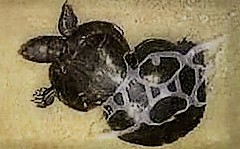It reaches a new world of increasingly sophisticated robots, drones, artificial intelligence, paperwork and online procedures that leave behind the long administrative queues not so distant even in our memories.
But none of that has a future on a planet that is degraded daily by our waste. Especially the derivatives of the world of plastic such as bags, junction rings for soft drinks, bottles … being the first element to cause ecological damage and taking up to 1000 years to degrade. Affecting the marine system and the different species of marine animals that ingest or die captured by them. Being an involuntary part of our diet in the last rung of the food chain when eating, these same animals contaminated by the micro plastics that we throw into their livelihood, although rationally and not humanly authorized to do otherwise.

The UN has asked to reduce the production of plastic because there are already five garbage companies composed mostly of micro-plastics: one in the Indian Ocean two in the Pacific and two in the Atlantic. The time has come to raise awareness of how and to get in touch with products such as Adidas in Germany, American companies such as Unifi, Ian Rosemberger or Nike, Ikea in Sweden, in Spain: “Upcycling the ocean” by the Ecoalf Foundation and Ecoembes that receive tons plastic from the mediterranean sea to recycle it.  The process seems simple: to crush the plastic collected from the sea turning it into small balls and then into polyester fiber from which to make garments, footwear and accessories … These clothes are already seen in European competitions such as football, in which team players like Bayern Munich have already played with recycled shirts.
The process seems simple: to crush the plastic collected from the sea turning it into small balls and then into polyester fiber from which to make garments, footwear and accessories … These clothes are already seen in European competitions such as football, in which team players like Bayern Munich have already played with recycled shirts.
The path of sustainability is already under way so that everyone can take it …
Another light is glimpsed along the way: an enzyme has been designed for a university study of another natural enzyme (Ideonella sakaiensis), by professors John McGeehan (University of Portsmouth) and Gregg Beckham (NREL) who is able to “eat” or degrade the plastic with which you can eliminate all the plastic waste that you expect stacked in huge garbage cans.